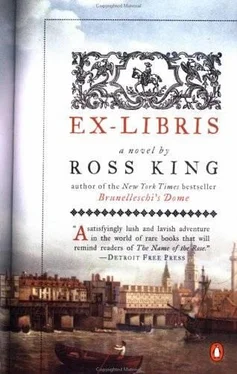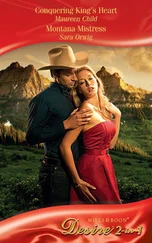I had only just finished reading the book myself. It contains a series of dialogues that pit a supporter of the Ptolemaic system, named Simplicius, against a more astute supporter of Copernicus. What happened to Galileo following its publication in 1632 is known well enough. Despite diplomatic support for Ptolemy and an enthusiastic reception across Europe, the book ran foul of the Church authorities. Pope Urban VIII, a friend of Galileo, ordered a prosecution, and so the old astronomer was summoned to Rome to stand trial before the Inquisition, charged with propagating Copernicanism, the theory holding that, contrary to the Holy Writ, the sun rather than the earth is the centre of the universe. In 1633 he was found guilty as charged, marched into the dungeons of the Inquisition to be shown the instruments of torture at the disposal of the Pope, then marched to church and made to recant his views. He was placed under house arrest for the rest of his life, while the Dialogo was placed on the Index librorum prohibitorum , the Vatican's list of forbidden books.
Snick-snick-snick…
The peculiar champing sound outside the window had grown louder. I shivered again and replaced the book, wondering what interest Alethea might have in this masterpiece of Europe's greatest astronomer. The volume seemed strangely out of place in the laboratory, for Galileo had been an enemy of the hocus-pocus and superstition bred by alchemists, occultists and other followers of the ancient shaman Hermes Trismegistus. So what connection could lie between the book and the chemicals ranged about it? Or even between Ortelius and Galileo, between the map-maker and the astronomer?
I had decided that there was no connection, that their presence in the laboratory was merely adventitious, when suddenly I spotted something else. The breeze from the window, riffling the pages of the Theatrum , exposed a strange insertion, a slip of paper, halfway through the text. The paper seemed to have been imprinted with a meaningless jumble of letters, what appeared to be some barbaric language:
FUWXU KHW HZO IKEQ LVIL EPX ZSCDWP YWGG
FMCEMV ZN FRWKEJA RVS LHMPQW NYJHKR KHSV JXXE FHR QTCJEX JIO KKA EEIZTU
AGO EKXEKHWY VYM QEOADL PTMGKBRKH
At first I thought the garbled inscription was a drastic mistake of the printer or bookbinder. Yet an error of this magnitude hardly seemed possible.
I turned the page. The verso was blank, but one of Ortelius's maps-that of the Pacific Ocean and its sprinkling of islands-continued on the following recto. Could it be that the leaf insertion was a deliberate but concealed interruption of the text? No doubt it wasn't part of the original gathering at all but had been stitched inside, for whatever reason, when the book was rebound. And the planed edges of the leaves told me that the book had indeed been rebound. So had it been an accident by the bookbinder? Had a page from another work-a page whose watermark was, I noted, different from the others-found its way into the loose quire and then into the binder's sewing-frame? Tom Monk, who was all thumbs when it came to binding books, often made errors of this sort. But I doubted that incompetence was at work in this case. Some effort had gone into its production, for it seemed no ordinary scrap of paper. I thumbed quickly through the rest of the maps and, finding no more anomalies, turned back to the mysterious leaf.
If its inclusion was no accident, there was one possible explanation, of course. For the past ten years rumours had abounded about how wealthy Royalist families had concealed their valuables in the grounds of their estates before fleeing into exile, hoping to reclaim them when they returned in happier times. Such rumours were probably the cause of the excavations I had seen beside the carriageway, the ones Alethea blamed on some misguided zeal of the villagers. I put little stock in such stories but now found myself wondering if the letters comprised not a foreign language but some sort of cipher, one that had been inscribed on the page and then hidden in the copy of Ortelius's Theatrum at the start of the Civil War. Perhaps the paper held a clue as to the whereabouts of Sir Ambrose's wealth of paintings and artefacts, all of which, as Alethea claimed, had disappeared. Perhaps the cipher was, like the book's beautiful engravings, a map of some sort.
I felt as if I had been conducted from one maze-the lengths of corridor-into an even more perplexing one. There seemed no way out… unless, of course, I took the book with me or, better yet, cut out the mysterious page with the penknife I now saw on the table. But was it, under any circumstances, excusable for me, a bibliophile, to mutilate a book?
The shameful deed was completed in two or three seconds. I pressed on the book's binding with my palm and drew the point of the instrument downwards along the hinge of the leaf, close to the stitching, as if opening the belly of a fish with a gutting knife. The page came away with a soft rip. I folded it twice and, placing it in my breast-pocket, was surprised to discover how swiftly my heart was beating. Then I drew a deep breath and stepped back into the corridor.
***
Snick. Snick. Snick-snick-snick…
The sound was brisk and penetrating, like the champing of teeth or the cry of some peculiar bird. I turned round, the morning sun warm on my back. No, not a bird. The top half of a man's head, its brow sunburnt, had appeared through a gap in the hedge. I squinted at the curved wall of foliage and caught, below the head, the swift glint of metal.
Snick, snick, snick…
The rhythm gathered pace, each sharp syllable answered a second later by the house's brickwork. The gap in the hedge was widening as I watched. Leaves and branches tumbled away. The hedge, like the parterre, was badly overgrown or, where not overgrown, either uprooted or chopped down-a hopeless tangle of hornbeam, whitethorn, privet and holly. The head ducked and the champing beak vanished from sight.
'The springs rise over there,' Alethea said, 'to our left. Just past the orangery.'
I turned my attention from the hedge. The two of us were standing to the west of Pontifex Hall, a few yards beyond the reach of its great quadrangular shadow, which stretched towards us across the sward. Alethea was pointing past a shallow pit, clogged with debris, above which a few miserable spars rose like ancient, idolatrous forms. Heaped about them were shards of old masonry. Beyond, on higher ground, a scattering of rocks had been arranged in broken geometric patterns.
'You can still see the remains of the dip-well.'
She nodded in the direction of the concentric rings. Once again her hand had grasped my forearm, this time in a gesture of intimacy. In the fresh light her soiled gown now proved not black after all but a mallard green. The hooded mantle, still draped over her shoulders despite the heat, looked to be embroidered with tiny faded flowers.
'The springs pour out of the rocks,' she continued, 'and into the dip-well and cress-pond, both devised by my father. From there the water disappears down a drain and runs towards the wings of the hall in a network of channels. The water was tamed and used in fountains and waterfalls. Even a giant waterwheel. It stood over there,' she said, turning to point vaguely to the south of the hall.
'All built by Sir Ambrose.'
'Of course. He was granted a number of patents for water pumps and windmills.'
She fell silent. At times this morning she seemed distracted, absorbed in some private, melancholy reverie that manifested itself in silence and oblique, unfathomable glances. We skirted the devastated orangery and now stood at the edge of the stone-lined cress-pond. It was infested with duckweed, and even at this hour its surface was thick with clouds of gnats.
Читать дальше












